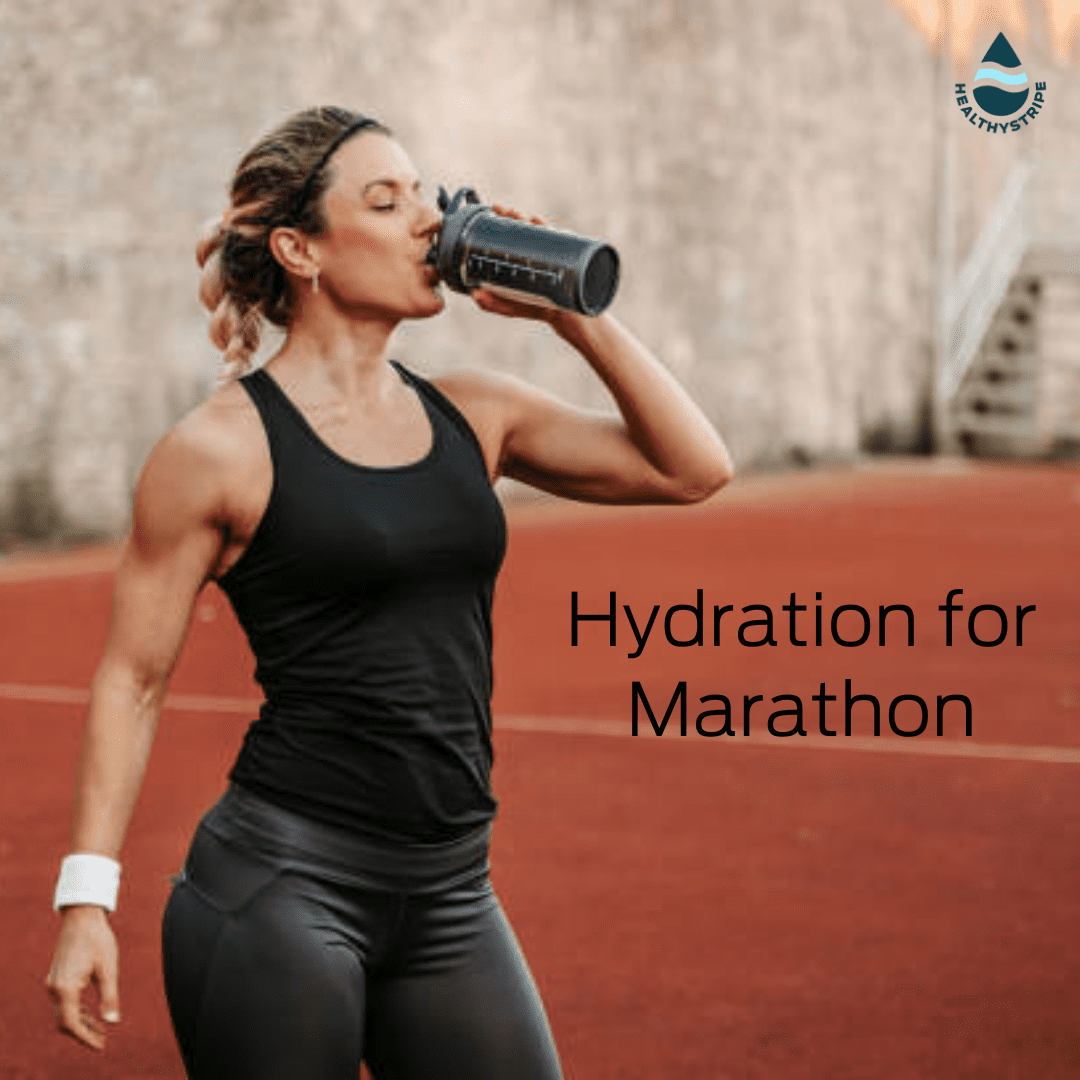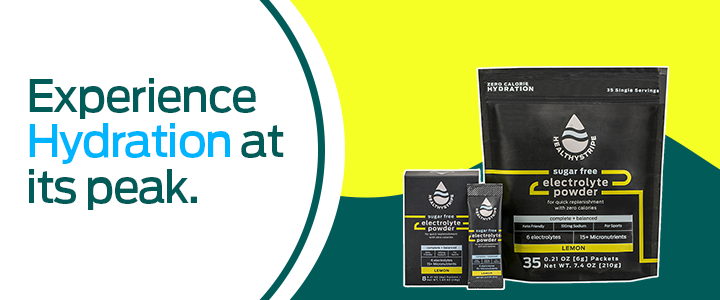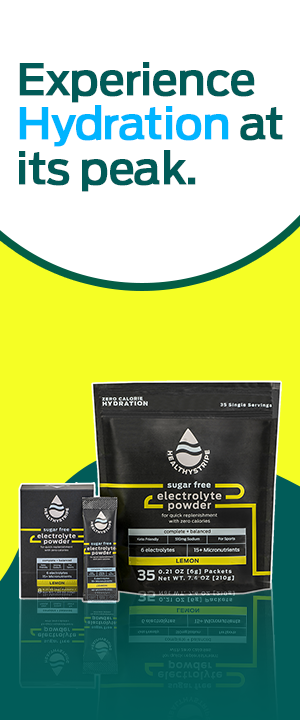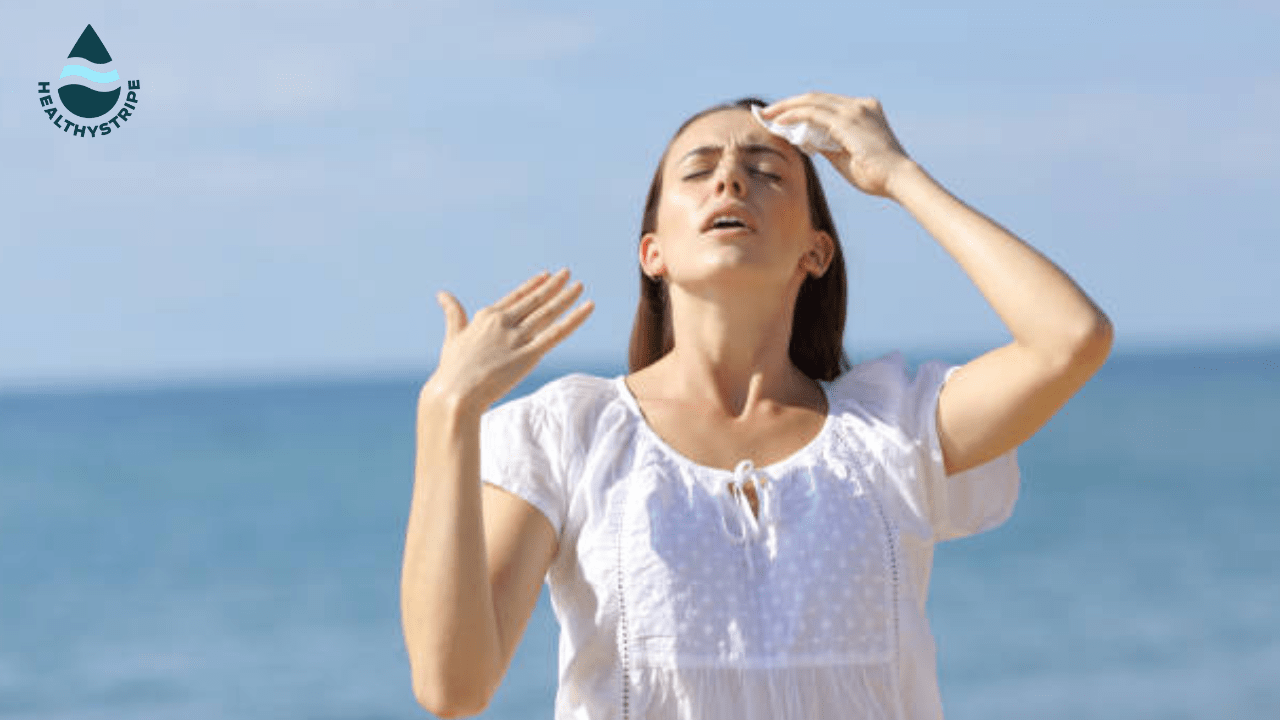Hydration for marathon: Everything you should know to stay hydrated

The Ultimate Guide to Fluid Intake in Marathons
Marathon running, often considered the ultimate challenge in long-distance running, remains the pinnacle despite the existence of even longer ultra-marathons for elite athletes. It is a grueling test, both mentally and physically, with no guarantee of success. It is also incredibly popular among the people. According to a 2019 report by the International Institute for Race Medicine, approximately 1.1 million runners, accounting for roughly 0.01 percent of the global population, successfully complete a marathon each year (1).
To conquer a marathon, meticulous preparation is essential. Training must commence well in advance of the event, requiring consistent dedication. In addition to training, proper nutrition plays a crucial role, although it is often underestimated.
However, one aspect that stands out as indispensable and capable of immediately impeding performance is hydration for marathon. Underestimating the importance of a sound hydration plan before and during a run, especially in the context of long-distance marathons, guarantees a world of suffering and inevitable failure.
Now, let’s delve into the significance of staying hydrated and explore how you can ensure optimal hydration and fuel for a marathon. To begin, let’s examine the repercussions of insufficient fluid intake.
How To Hydrate For A Marathon?
Hydration during sports can be achieved through various options, such as sports drinks, hydration tablets, and gels. It is advisable to sip regularly rather than consume large amounts at once to avoid discomfort and imbalanced sodium levels. Depending on your sweat rate, drinking approximately ⅓ of a litre every 15 minutes is recommended for those who sweat a lot (2).
- Sports drinks and gels are particularly beneficial for long-distance runs or marathons. They contain electrolytes, which are crucial for efficient bodily functions, nerve and muscle regulation, quick hydration, acid balance, and tissue repair.
- Hydration tablets are convenient to consume on the go and replenish lost potassium, sodium, magnesium, and bicarbonate due to sweating. They help in quickly absorbing electrolytes and reducing stomach acidity.
- Sports gels are commonly used by marathon runners to provide much-needed energy in the form of carbohydrates, ensuring smooth performance.
To stay hydrated during a marathon, adding electrolyte sachets to a bottle of water and sipping it intermittently is recommended. Using a running hydration vest with pockets for water bottles and straws can be a practical solution, allowing you to carry both water and electrolyte-rich sports drinks conveniently.
The moment you start your marathon, dehydration begins. Around 75% of the energy you exert during exercise is converted into heat and subsequently lost (3).
Water requirements vary based on individual sweat rates, which are influenced by factors like heat, humidity, and exercise intensity.
However, the most critical aspect of drinking water for a half marathon or a marathon occurs well before you reach the starting line.
Ensuring adequate hydration should be a priority at least 48 hours prior to your marathon. Start sipping approximately 600ml of water three to four hours before the race and continue until your urine is clear. If it remains unclear, consume an additional 400ml.
Be cautious not to drink a whole litre of water just before running, as it can dilute your sodium balance, cause bloating, and increase the need for frequent bathroom breaks along the way.
Marathon Hydration Plan And Tips
Running a marathon is not an easy task. Of course, you need some help in order to run and complete the marathon properly. Here are some tips that can help you strategize your marathon running in the best way.
- Plan Your Route Strategically: It is more than important to ensure that you choose the route you are running has a water fountain nearby so that you don’t have to carry additional water bottles. You can just simply for ahead and refill the one bottle you have from the fountain. One other thing to do is to run all your laps from and to the car so that you can stack up things in the car and simply the just refill your water or snacks.
- Set A Reminder: It can be quite easy to lose yourself in the run and you might not be able to keep a track on the time. So, there is a chance that you might forget to stay hydrated. So, set up a timer to remind you to drink water every 20 minutes.
- Keep Fluids Accessible: Whether you prefer a handheld water bottle, a hydration waist pack or belt, or the best hydration vest for marathon, the key is to always have your water or sports drink within reach. Try to avoid stopping your run to drink, as it will slow you down, and you might not stop frequently enough to stay properly hydrated.
How Much Water Should I Drink Before, During, And After A Marathon?
The amount you need to drink to stay hydrated while running a marathon depends on how long you run and how much you perspire. Here are some particular comprehensive recommendations for runs lasting 45 minutes or more:
- Drinking Before the Marathon: Pre-hydrating is advised to consume 17 to 20 fluid ounces (around 500 to 590 milliliters) of water or a sports drink about two hours before starting your run to guarantee proper hydration. You start your run well-hydrated thanks to this pre-hydration.
- Drinking during the Marathon: Aim to consume 5 to 10 fluid ounces (150 to 300 millilitres) of water or a sports drink every 15 to 20 minutes while jogging. To stay appropriately hydrated throughout the run, you can take a couple of nice long drinks or little sips at regular intervals. Depending on your particular sweat rate and the surrounding conditions, adjust the amount.
- Rehydrating After the Marathon: It’s critical to replace your fluid stores and aid in recuperation after your run. Aim to consume 16 to 24 fluid ounces (47 to 510 milliliters) of water for every pound (or roughly 0.45 kilogram) of body weight lost during the run. This will promote recuperation and enhance your body’s water balance.
You might be able to avoid drinking water during shorter runs of 45 minutes or less. But it’s always a good idea to bring water, especially in hot weather or when you expect to perspire a lot. Regardless of the length of the run, many runners opt to bring water with them and consume it to stay well hydrated.
Keep in mind that while these recommendations are a good place to start, each person’s demands may differ. To stay properly hydrated when running, it’s important to pay attention to your body, track how much you’re thirsty, and modify how much fluid you’re consuming as needed.
What Are The Signs Of Dehydration And How Can I Prevent It?
Dehydration occurs when the body loses more fluids than it takes in, often due to sweating. Failing to replenish these lost fluids by drinking water can lead to dehydration. On average, marathon runners tend to finish the race with a dehydration level ranging from 3% to 4% and only manage to replace less than 50% of the fluids lost through sweat (4). Here are some indicators that your fluid intake is insufficient:
Some early signs that tell you about dehydration include:
- Dry mouth
- Decreased energy levels or diminished running performance
There are some other severe symptoms of dehydration, that include:
- Muscle cramps
- Headaches
- Nausea
- Dark or brightly colored urine with reduced volume
To combat dehydration, the solution is simple: Drink water. It’s better to consume small, frequent sips of water rather than large amounts infrequently. Additionally, incorporating sports or energy drinks can help replenish carbohydrates and electrolytes.
One commonly recommended practice is to weigh yourself before and after running. If you have lost a significant amount of weight, it’s likely, you haven’t been drinking enough water. It’s important to note that during the long run, some weight loss is expected, which emphasizes the need for rehydration afterwards. For more accurate results, try to match pre- and post-run conditions, such as emptying your bladder both times, to ensure the reliability of your weight-loss data.
Can You Be Overhydrated? How to Prevent It?
For endurance athletes like marathon runners, ultrarunners, and triathletes, avoiding overhydration, also known as hyponatremia, is essential. When the salt levels in the blood are overly diluted, it can cause hyponatremia, which impairs cell activity. Typically, the 136 to 145 millimoles (mmol) per liter range for salt levels in the body is considered healthy (6). In extreme circumstances, low sodium levels can even cause coma or death.
It is important to remember that hyponatremia symptoms, such as fatigue, headaches, and nausea, might resemble those of dehydration. This frequently leads runners to mistakenly drink extra water, aggravating the issue. It is advised to use a Marathon hydration calculator to determine your daily water intake.
It’s crucial to properly control your fluid intake to avoid overhydration:
- Avoid Compulsive Drinking: An increased risk of hyponatremia can result from excessive hydration. Instead, stick to a consistent drinking schedule of around 10 fl. oz. every 20 minutes. Avoid drinking more throughout your run than you sweat. Weight gain when running is a definite sign that you are consuming too much alcohol.
- Maintain A Healthy Sodium Level: Maintaining a healthy sodium balance is crucial to avoiding hyponatremia. Include sodium-containing foods and drinks in your diet. Sports drinks with salt can be especially beneficial for preserving electrolyte balance.
You may easily prevent the problems connected with overhydration and guarantee a secure and proper experience when endurance running by being aware of your fluid intake and sodium levels. When it comes to staying hydrated during strenuous physical activity like marathons, keep in mind that moderation and balance are essential.
Why Do Runners Need Electrolytes When Running?
Running athletes must maintain a healthy electrolyte balance in order to train effectively and perform at their best. A recent study found that eating electrolytes before a run can improve fluid retention, leading to better rehydration (5). The study was published in the journal Medicine and Science in Sports and Exercise.
Your next run may be hampered by muscle fatigue and cramps if your electrolytes are out of balance. It’s crucial to remember that simply consuming water is insufficient. Before a marathon, rehydrating with water only without electrolyte loading before marathon might cause your bloodstream’s electrolyte balance to become unbalanced.
Extreme circumstances, like drinking too much water during a lengthy run in hot weather, can result in hyponatremia, a severe illness marked by abnormally low blood sodium levels.
A healthy electrolyte level is therefore essential for both performance and general health. An electrolyte imbalance might cause stomach cramps or side stitches in addition to more frequent leg cramps.
Conclusion
So, this is what you need to learn about hydration for runners before the marathon. We guess you understand from the article that it is extremely important to keep yourself properly hydrated before as well as after the marathon. If you want to ensure that you are able to sustain the best performance and prevent all the negative effects of dehydration, fluid intake should be controlled for sure. In order to replace the fluids and electrolytes that have been lost, marathon runners need to make sure that they are properly monitoring their fluid balance before, during, and, after the race too.
Do I need a hydration pack for a half marathon?
Can you overhydrate for a marathon?
Yes, there is a possibility that you might overhydrate for a marathon for sure. If you have managed to drink a lot of water, then the sodium levels in the body will definitely be diluted. This can actually cause a condition which is known as hyponatremia. There are health problems that you might have to face due to this. By drinking different fluids in moderation, you can actually steer clear of this condition.
What do elite runners drink during marathons?
When it comes to running marathons, the runners who belong to the professional field tend to mix up sports drinks and water. These drinks have been created to make sure that the runners are all hydrated and have a proper balance of electrolytes in their bodies. Not to mention that these drinks also help in eliminating problems of dehydration while maximizing the performance of these elite runners.
What are the most common marathon mistakes?
There are some common mistakes that people tend to make when they are running a marathon. For example, not getting proper training is one of the most common mistakes. Also, bad diet and hydration are some others. Apart from that, using ill-fitting clothes and not judging the weather conditions better are other common mistakes as well. So, make sure that you avoid these mistakes at all costs to get the best results.
How do you hydrate in the long run?
Hydration for a long run is extremely important both before as well as during and after the run. So, make sure that you have some tactics that you can follow. For starters, you will have to properly hydrate yourself before the actual run. Also, during the run you might lose some fluids from the body. Simply keep on drinking water after every 20-minute interval to keep the balance. Also, don’t forget to look at what your body tries to tell you and set your pace accordingly for hydration.
Why is hydration important in a marathon?
In a marathon, we tend to lose a lot of important fluids in our body due to perspiration. So, hydration becomes a very important thing to keep in mind if you are trying to run in a marathon. If your body constantly keeps on losing the fluids, you might end up suffering from dehydration. Loss of essential fluids in the body can also lead to other problems such as cardiovascular issues, muscle cramps, etc. So, make sure that you keep on hydrating yourself every now and then during the marathon.
Should I take water or electrolytes for marathon?
We would recommend that you go with both water and electrolytes when you are participating in a marathon. Electrolytes include sodium, magnesium, and potassium, which are incredibly helpful for the body as they help in mineral restoration. Water, on the other hand, provides hydration benefits and keeps the body functioning well during the marathon.









